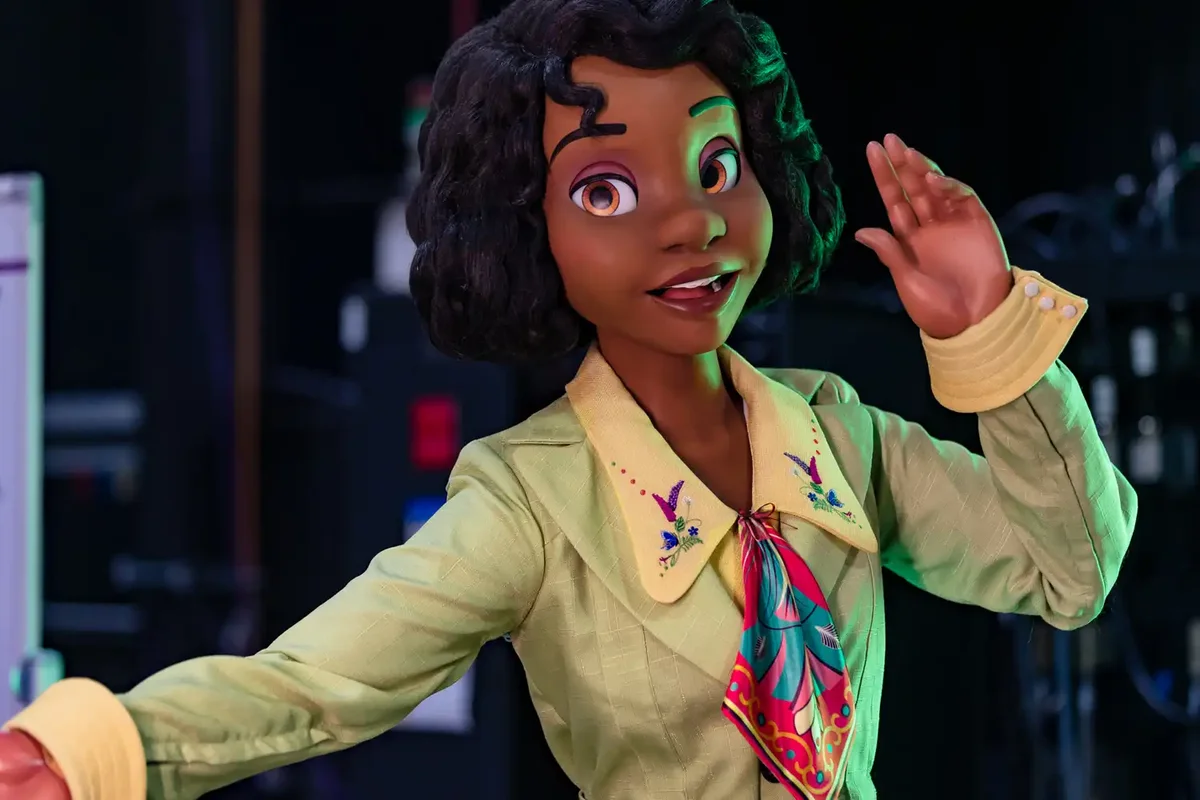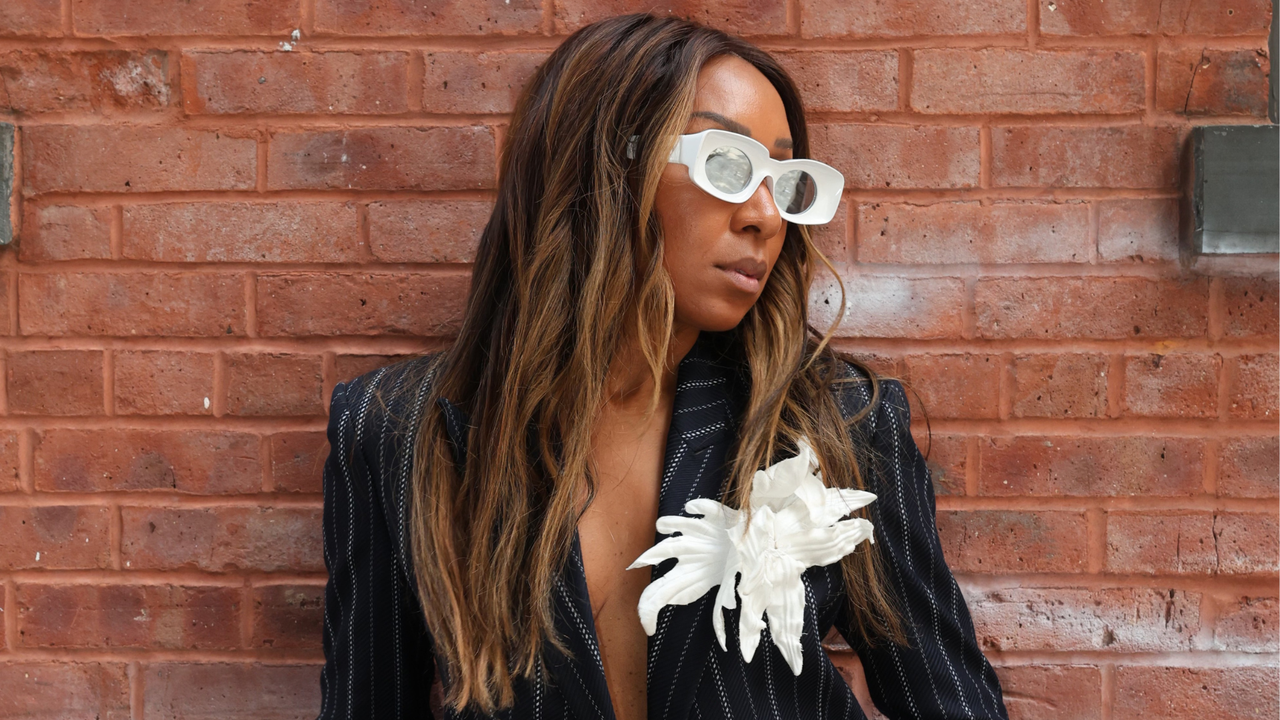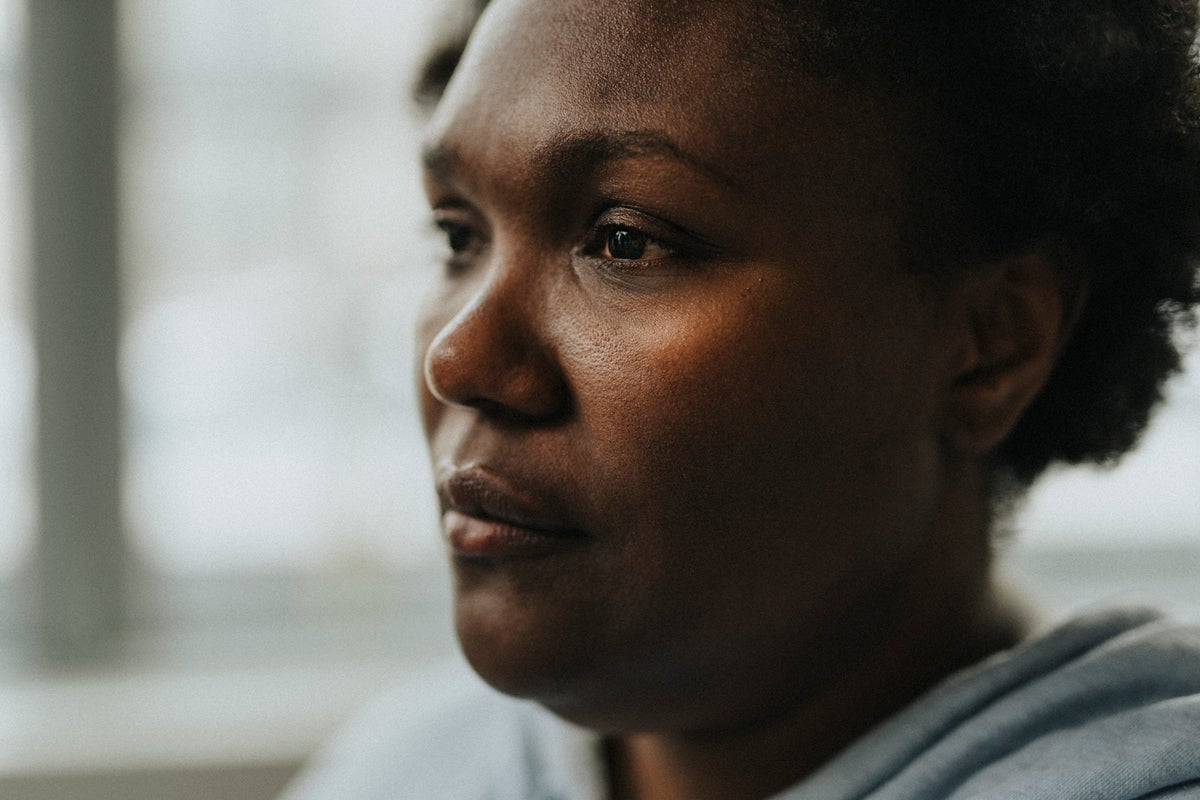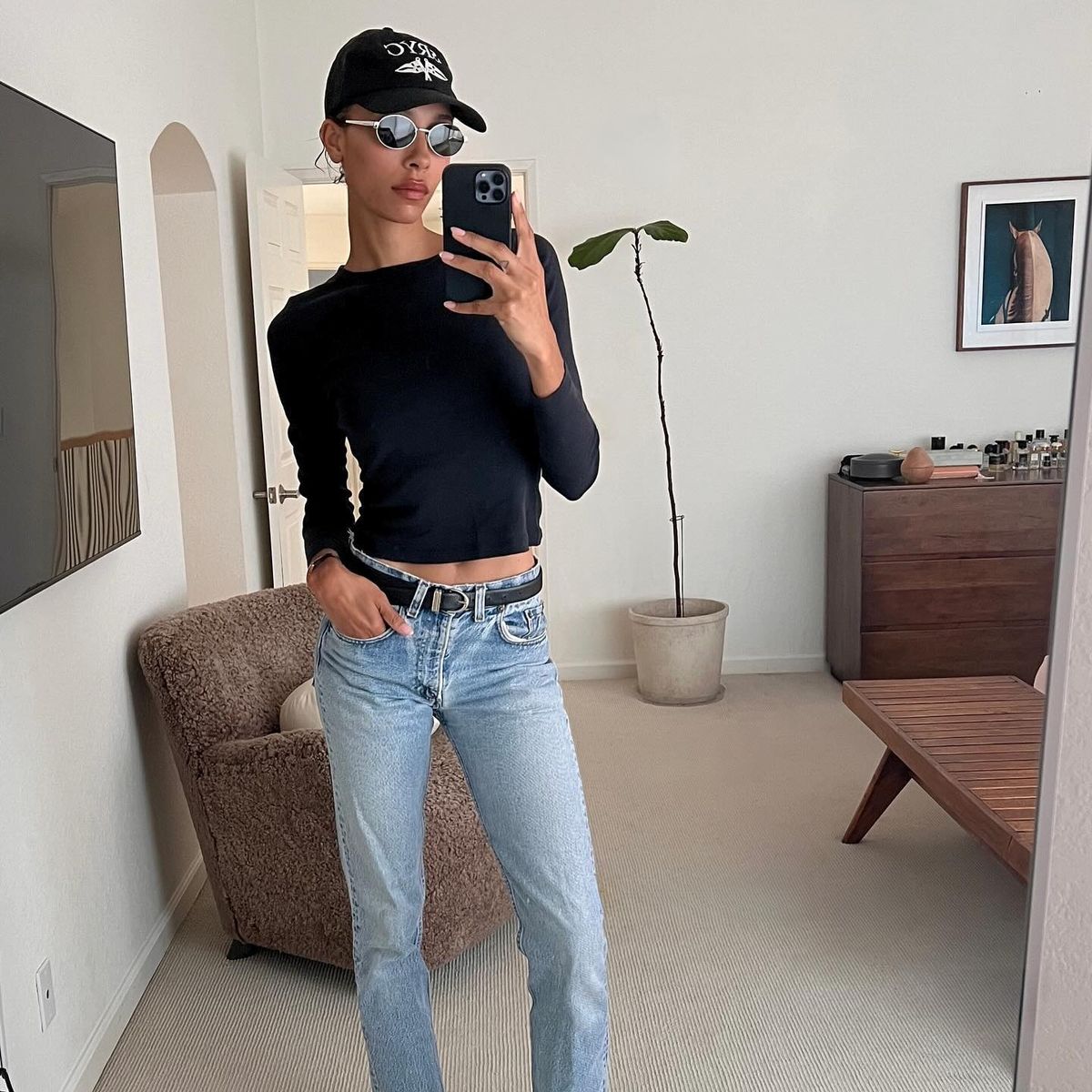

It isn’t unheard of for a woman’s menstrual cycle to begin as early as the age of nine, but it can be debilitating and confusing when it also comes with immense pain. This was the experience of NBC News Daily anchor Zinhle Essamuah.
“[I] had intense pain and cramping, would sometimes miss school, and often would bleed through my clothes. And I raised this to many doctors, and mostly it was dismissed,” she tells ESSENCE.
Despite having to endure painful periods throughout her life, she was told it wasn’t uncommon by healthcare providers, and began to believe it. But alarms went off when the news anchor’s periods began disrupting her work life in her late twenties.
“I was living in New York, full-time job, hosting shows, and it was becoming disruptive, and so I really persisted with a doctor and said, ‘Look, I feel like what I’m experiencing isn’t normal,’” she explains.
After relentlessly advocating for herself, Essamuah was finally able to get an ultrasound, which uncovered three fibroids. These are, usually, non-cancerous tumors made of muscle cells and fibrous connective tissue that form in the uterus. Fibroids are especially pervasive among African American women–up to 80% will develop the condition before they turn 50, according to studies.
Essamuah finally had an answer for what was going on within her body, and it wasn’t a surprise. Her mother educated her about fibroids from a young age since she had them as well.
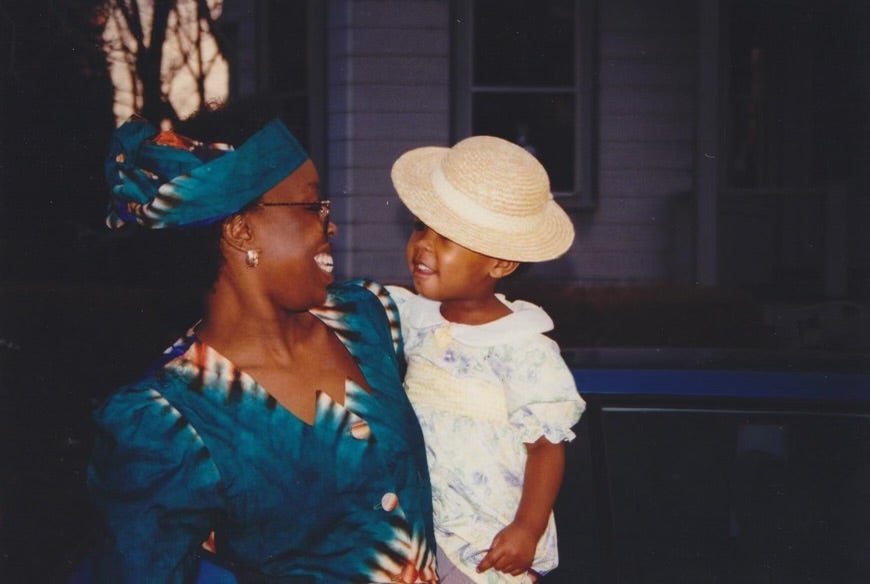
“I had always been aware that, okay, this is likely going to be in my future,” she says.
Coincidentally, Essamuah and her mother were diagnosed with fibroids around the same age and had the same number of tumors. While a diagnosis gave a formal name to the intense periods and pain the news anchor had been experiencing for almost two decades, she still wasn’t provided with clarity about how to move forward by the doctor who diagnosed her. For this reason, she did research on her own, looking for ways to manage her fibroids and trying lifestyle changes like reducing her intake of soy products, getting acupuncture treatments, and also getting an intrauterine device (IUD) to manage period symptoms.
Despite these efforts, the heavy periods persisted and became progressively worse. When she went to visit her grandmother in Uganda, Essamuah had a medical emergency, bleeding profusely after her menstrual cycle had already ended. Upon her return home, she was referred to a doctor and ended up in the ER. She found out one of her fibroids had grown substantially.
“One had ultimately doubled in size,” she says. “So large that it had expanded my uterus and displaced my IUD.”
She was eventually referred to NYU Langone’s Center for Fibroid Care, where she could get specialized help and recently had her first surgery, a minimally invasive hysteroscopy that removed a portion of the largest fibroid. The journey was recently shared on TODAY and NBC News Daily, and the experience taught Essamuah the importance of seeking multiple opinions from healthcare providers.
Article continues after video.
“I shouldn’t have ended up in the ER given how long I had flagged the challenges and the fact that they had been aware of my diagnosis,” she says. “Don’t be afraid to get a second opinion. You as a patient have rights, and you as a patient should feel heard and know that you’re being listened to.”
Some people struggle with advocating for themselves, but Essamuah says there are multiple ways to do it. That includes tracking experiences and symptoms, vetting healthcare providers, and seeking a community of support. Tracking your experiences can look like creating a log via a journal every time you experience symptoms like heavy periods and bleeding, for instance.
“It wasn’t until this medical emergency that I really started to take even more detailed notes of my menstrual cycle,” she says. “What color is it today, and how heavy is it? And how many pads have I gone through in an hour? It might seem laborious but I think it’s worth it.”
When it comes to vetting healthcare providers, it can be helpful to share openly that you’re looking for one, says the news anchor. She adds that it may also be best to search specifically for fibroid doctors or specialists and read reviews before jumping in. Even after choosing the right healthcare provider, you must continue advocating for yourself. If you struggle to do so, bringing a trusted person to speak up for you to your appointments can help. This is something Essamuah does that’s been effective.
Finally, it’s important for women to be clear about what their treatment options are for fibroids.
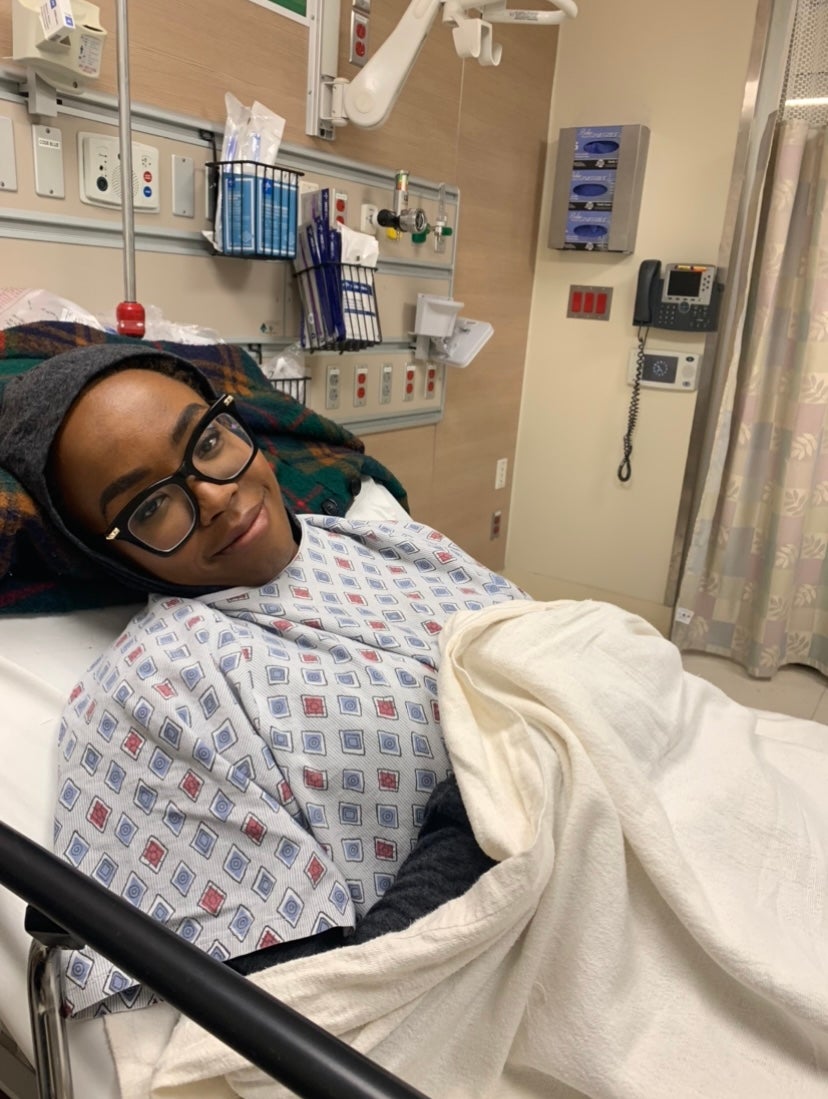
Some fibroids can be removed by doing a hysteroscopy, which involves placing a hysteroscope into the vagina to remove the fibroids. For larger fibroids, there’s the option of doing a laparoscopic myomectomy, placing a surgical instrument into the naval to remove the tumors. These options can be attractive to women who are concerned about their fertility and believe the fibroids are a culprit for struggles to conceive. However, for women who aren’t looking to have children, it’s possible to do a hysterectomy and remove the uterus, which can eliminate fibroid symptoms for good. A less invasive alternative is to get a uterine artery embolization, which blocks blood flow to fibroid tumors. Women may also have the option of freezing their eggs before undergoing any procedure.
Note that not all fibroids come with symptoms that require treatment, and they’re not typically deadly. However, untreated fibroids can lead to excess blood loss and, consequently, conditions like anemia or infertility. Understanding how the fibroids affect your health and the options available is critical.
One of the most important ways to ensure a range of options when it comes to treating fibroids is early detection.
“If you face it early, you have more options than when it’s pushed off,” Essamuah says.
Some people may be apprehensive about seeing a specialist or get discouraged when they’re continuously dismissed. That frustration is understandable, considering the way Black women are often treated within the healthcare system. However, Essamuah encourages us to keep pushing through and advocating for ourselves to get the necessary answers.
“While it’s exhausting, we owe it to ourselves to make sure we are getting the care we deserve. And I would say trust your gut. We know nobody knows your body better than [us] at the end of the day, even if you have the best doctor,” she says. “Even as I’ve seen these specialists, I know nobody’s a better student of my body than me.”

